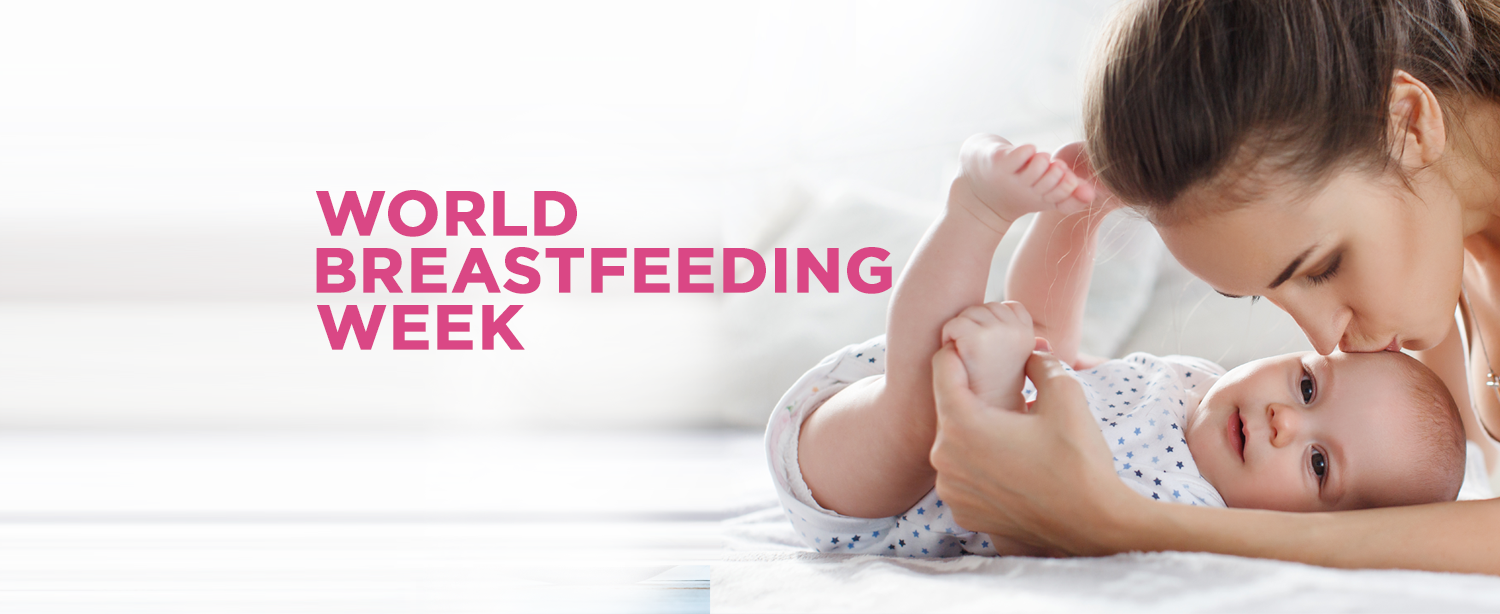The World Health Organisation WHO recommends six months of exclusive breastfeeding for babies and thereafter continuing breastfeeding on demand till the child reaches two years of age. Breast feeding is the most valuable gift which you can give to your newborn. It is the healthiest natural food for your baby and undoubtedly plays a very important role in his/her life. Breast milk contains all the nutrients which babies need for their growth and to stay healthy for a longer period of time.
Benefits of Breastfeeding:
- Early breast milk also called colostrum is a magical liquid for your baby. This milk is rich in nutrients and antibodies and helps to protect your baby.
- Exclusive breast feeding during the first six months protects your baby from various types of illness. The protection given by mother’s milk is quite unique and can never be matched by formula milk. Breast feeding is also helpful in reducing the cases of pneumonia, meningitis, asthma and risk of different allergies in your baby.
- Your breast milk changes as your baby grows, colostrum changes into the much refined form of milk which contains the perfect amount of proteins, carbohydrates, fats, water, sugars, vitamins and minerals. Basically it provides all essential nutrients and antibodies which your baby needs for his proper development and growth
- Most of the infants can digest breast milk very easily as compare to formula or any other milk because breast milk contains certain enzymes which helps baby to digest the milk.
- Research suggests that exclusive breastfeeding to your babies for first 6 months can help in improving your baby’s cognitive development. There are also some evidences which support that children who were breastfed in their early life score higher on IQ tests and academics.
- Breastfeeding is a great way for mothers to regain their pre-pregnancy size as lactation triggers the contractions in uterus and helps it to shrink to the normal size. Feeding your baby also burns the extra calories without even doing any work.
- Breastfeeding not only protects your child from different diseases but also reduces the mothers risk from health problems like type 2 diabetes, postpartum depression, ovarian and breast cancer.
- Breast feeding saves money and is convenient. It eliminates the need of formula and related feeding supplies essentials and sterilizing of bottles.
- Breast milk is safe and always ready for your baby’s consumption due to its right temperature and availability. Travel can be easier too with breastfeeding as your baby will never run out of food.
A breastfeeding mothers diet
Many new moms wonder how breastfeeding will affect their diet. Here are a few tips:
Eat a well-balanced diet for your health
You need a lot of energy and stamina to meet the physical demands of caring for a new baby. Eating small meals with healthy snacks in between – the way you may have done during pregnancy – is a good way to keep your hunger in check and your energy level high.
Don’t count calories
Breastfeeding and dieting do not go together. Most breastfeeding women need about 500 calories extra every day. Instead of counting calories, follow your hunger as a guide to how much you need to eat.
Include a variety of healthy foods
Complex carbs like wholegrains, cereals and fresh fruits and vegetables not only provide more nutrition than processed starches and sugars, they provide longer-lasting energy. And choosing from all food groups is important so you can get the vitamins you and your baby need over time.
Choose good fats
When it comes to fat, think mono- and polyunsaturated fats. Sources of these “healthy fats” include canola oil, olive oil, and fatty fish as well as avocados, olives, nuts, and seeds. Limit saturated fats and avoid trans fats, both of which are considered unhealthy.
Say No to alcohol
Hold off on drinking alcohol while you’re breastfeeding. Alcohol does enter your breast milk, and having as little as one drink may affect your milk letdown reflex.
Stay hydrated
When you’re breastfeeding, your body needs plenty of fluids. Keep sipping on water and other healthy liquids throughout the day. If your urine is clear or light yellow, it’s a good sign that you’re well hydrated. Limit your caffeine intake as it dehydrates you and may also accumulate in your baby’s system.
A new mother may have various concerns about breastfeeding. Let’s look at some common issues:
Signs that indicate your baby is getting enough breast milk
- Your baby seems relaxed and satisfied after a feeding.
- Your baby shows a good weight gain pattern.
- Your baby wets at least six diapers a day after your milk comes in.
Signs that show your baby remains hungry:
- Your baby continues to lose weight.
- Your baby is wetting fewer than six diapers in a 24-hour period after the five days following his birth.
- Your baby’s urine is very dark.
- Your baby is fussy or lethargic much of the time.
Although most moms are able to provide their babies with all the milk they need, sometimes babies don’t get enough. The mother may be facing some breastfeeding issues and if it is not addressed soon the baby can suffer from severe dehydration. Seek your paediatricians help immediately in such cases or consult a lactation consultant. Consult experts at our centre for Mother and Child for any help needed for Breastfeeding. Please find below link as below:
https://www.kokilabenhospital.com/departments/centresofexcellence/centrefor_motherchild.html


